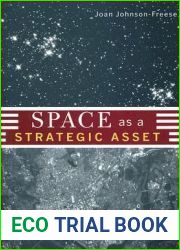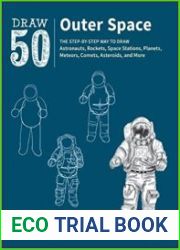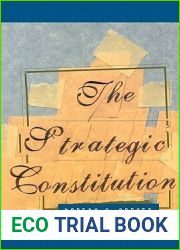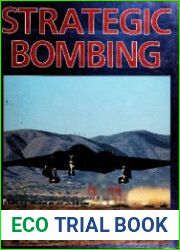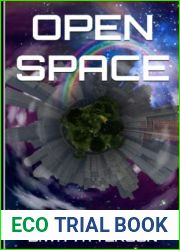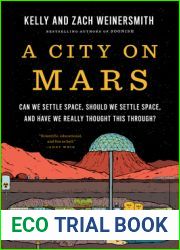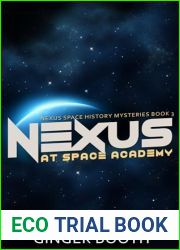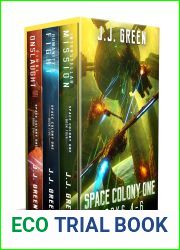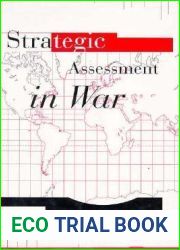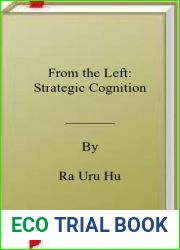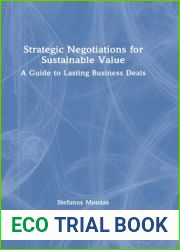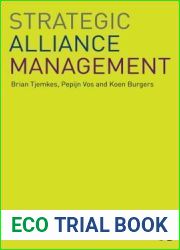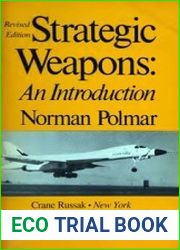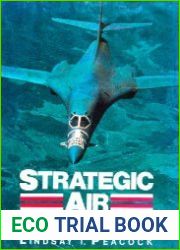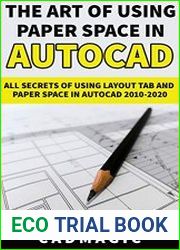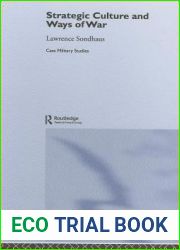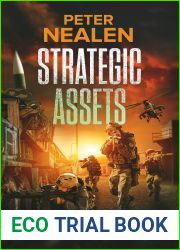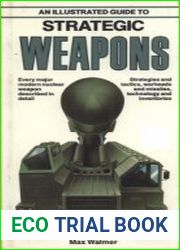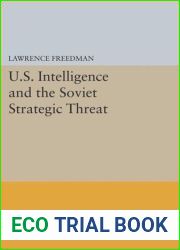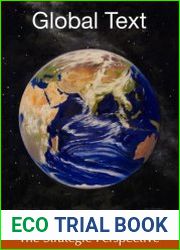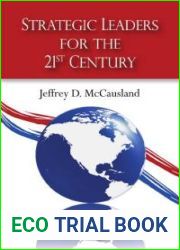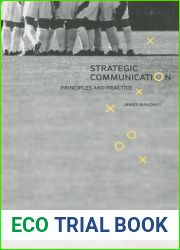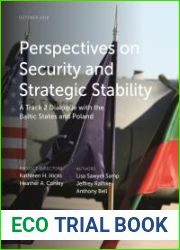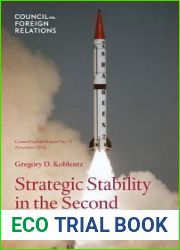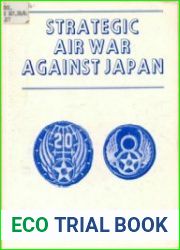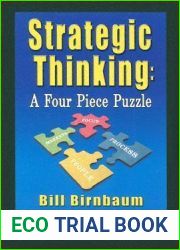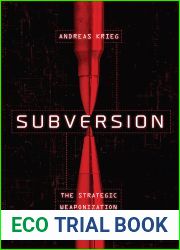
BOOKS - Space as a Strategic Asset

Space as a Strategic Asset
Author: Joan Johnson-Freese
Year: February 28, 2007
Format: PDF
File size: PDF 1.2 MB
Language: English

Year: February 28, 2007
Format: PDF
File size: PDF 1.2 MB
Language: English

Space as a Strategic Asset: A Call for Cooperation in the Race for Space Exploration In her book, "Space as a Strategic Asset Joan Johnson-Freese argues that the race for space weapons and the quest for exclusive ownership of strategic space assets by the United States has alienated its allies, hindering the nation's ability to maintain its leading role in space exploration. She offers a critique of the policy changes of the mid-1990s that have driven this obsession with weaponizing space technology, and highlights the dangers of viewing space as a battlefield. Instead, she proposes a comprehensive and non-partisan approach to space security, emphasizing the importance of cooperation over competition. The book begins with an overview of the history of international space development, from the pre-Sputnik era to the post-Apollo period and the current state of globalization. Johnson-Freese explains how these historical events have shaped the attitudes and actions of other countries towards space exploration, and how the United States' focus on developing space technology as a tool for globalization has led to a decline in its manned space program. Johnson-Freese argues that the United States' obsession with space weapons has not only affected its relationships with other nations but also put the country at greater peril. She contends that the technological advancements of other countries are not a threat, but rather an opportunity for collaboration and mutual benefit.
Космос как стратегический актив: призыв к сотрудничеству в гонке за освоение космоса В своей книге «Космос как стратегический актив» Джоан Джонсон-Фриз утверждает, что гонка за космическое оружие и стремление к исключительному владению Соединенными Штатами стратегическими космическими активами оттолкнули их союзников, препятствуя способности нации сохранять свою ведущую роль в освоении космоса. Она предлагает критику политических изменений середины 1990-х годов, которые привели к этой одержимости вооружением космических технологий, и подчеркивает опасность рассмотрения космоса как поля битвы. Вместо этого она предлагает комплексный и беспартийный подход к космической безопасности, подчеркивая важность сотрудничества, а не конкуренции. Книга начинается с обзора истории международного освоения космоса, начиная с эпохи до «Спутника» и заканчивая периодом после «Аполлона» и нынешним состоянием глобализации. Джонсон-Фриз объясняет, как эти исторические события сформировали отношение и действия других стран к освоению космоса, и как сосредоточение США на развитии космических технологий как инструмента глобализации привело к упадку их пилотируемой космической программы. Джонсон-Фриз утверждает, что одержимость Соединенных Штатов космическим оружием не только повлияла на их отношения с другими странами, но и поставила страну под большую угрозу. Она утверждает, что технологические достижения других стран являются не угрозой, а скорее возможностью для сотрудничества и взаимной выгоды.
L'espace en tant qu'atout stratégique : appel à la coopération dans la course à l'exploration spatiale Dans son livre « L'espace en tant qu'atout stratégique », Joan Johnson-Freeze affirme que la course aux armes spatiales et la volonté de posséder des actifs spatiaux stratégiques aux États-Unis ont repoussé leurs alliés, empêchant la nation de conserver son rôle de chef de file dans l'exploration spatiale. Elle critique les changements politiques du milieu des années 1990 qui ont conduit à cette obsession pour l'armement des technologies spatiales et souligne le danger de considérer l'espace comme un champ de bataille. Elle propose plutôt une approche intégrée et non partisane de la sécurité spatiale, soulignant l'importance de la coopération plutôt que de la concurrence. livre commence par un aperçu de l'histoire de l'exploration spatiale internationale, de l'ère avant Spoutnik à la période après Apollo et à l'état actuel de la mondialisation. Johnson-Freese explique comment ces événements historiques ont façonné les attitudes et les actions d'autres pays à l'égard de l'exploration spatiale, et comment la concentration des États-Unis sur le développement des technologies spatiales en tant qu'outil de mondialisation a entraîné le déclin de leur programme spatial piloté. Johnson-Freeze affirme que l'obsession des États-Unis pour les armes spatiales a non seulement affecté leurs relations avec d'autres pays, mais a également mis le pays en danger. Elle affirme que les progrès technologiques d'autres pays ne sont pas une menace, mais plutôt une occasion de coopération et d'avantages mutuels.
espacio como activo estratégico: un llamado a la cooperación en la carrera por la exploración espacial En su libro «espacio como activo estratégico», Joan Johnson-Frise sostiene que la carrera por las armas espaciales y la búsqueda de la posesión exclusiva de los Estados Unidos de activos espaciales estratégicos han alejado a sus aliados, obstaculizando la capacidad de la nación para mantener sus activos espaciales estratégicos Liderazgo en la exploración espacial. Ofrece una crítica a los cambios políticos de mediados de la década de 1990 que llevaron a esta obsesión por armar la tecnología espacial y destaca el peligro de considerar el espacio como un campo de batalla. En cambio, propone un enfoque integrado y no partidista de la seguridad espacial, destacando la importancia de la cooperación y no de la competencia. libro comienza con una revisión de la historia de la exploración espacial internacional, desde la era anterior a Sputnik hasta el período posterior a Apolo y el estado actual de la globalización. Johnson-Frise explica cómo estos acontecimientos históricos han moldeado las actitudes y acciones de otros países en la exploración espacial, y cómo el enfoque de Estados Unidos en el desarrollo de la tecnología espacial como herramienta de globalización ha llevado a la decadencia de su programa espacial tripulado. Johnson-Frise sostiene que la obsesión de Estados Unidos con las armas espaciales no sólo ha afectado sus relaciones con otros países, sino que también ha puesto al país en gran peligro. Sostiene que los avances tecnológicos de otros países no son una amenaza, sino más bien una oportunidad de cooperación y beneficio mutuo.
Cosmos como um ativo estratégico: um apelo à cooperação para a exploração espacial Em seu livro «Cosmos como um ativo estratégico», Joan Johnson-Friese afirma que a corrida pelas armas espaciais e a busca pela posse exclusiva dos bens espaciais estratégicos dos Estados Unidos afastaram seus aliados, impedindo a capacidade da nação de manter seu papel de liderança na exploração espacial. Ela propõe críticas às mudanças políticas de meados dos anos 1990, que levaram a essa obsessão por armar tecnologias espaciais, e ressalta o perigo de o espaço ser visto como um campo de batalha. Em vez disso, propõe uma abordagem integrada e sem partido da segurança espacial, enfatizando a importância da cooperação e não da competição. O livro começa com uma revisão da história da exploração espacial internacional, desde a era anterior ao Sputnik até o período posterior à Apollo e o atual estado da globalização. Johnson-Friese explica como estes acontecimentos históricos moldaram as atitudes e as ações de outros países na exploração espacial, e como o foco dos EUA no desenvolvimento da tecnologia espacial como ferramenta da globalização levou ao declínio de seu programa espacial tripulado. Johnson-Friese afirma que a obsessão dos Estados Unidos por armas espaciais não apenas afetou suas relações com outros países, mas também colocou o país em grande risco. Ela afirma que os avanços tecnológicos de outros países não são uma ameaça, mas uma oportunidade de cooperação e benefício mútuo.
Spazio come asset strategico: un appello alla cooperazione per l'esplorazione dello spazio Nel suo libro, «Spazio come risorsa strategica», Joan Johnson-Freeze sostiene che la corsa per le armi spaziali e la ricerca della proprietà esclusiva degli asset spaziali strategici degli Stati Uniti hanno allontanato i loro alleati, ostacolando la capacità della nazione di mantenere il suo ruolo di leader nell'esplorazione dello spazio. Offre critiche ai cambiamenti politici della metà degli annì 90, che hanno portato a questa ossessione per l'armamento della tecnologia spaziale, e sottolinea il pericolo di considerare lo spazio come un campo di battaglia. Offre invece un approccio integrato e non partitico alla sicurezza spaziale, sottolineando l'importanza della cooperazione e non della concorrenza. Il libro inizia con una panoramica della storia dell'esplorazione internazionale dello spazio, dall'epoca allo Sputnik al periodo successivo all'Apollo e all'attuale stato della globalizzazione. Johnson-Freeze spiega come questi eventi storici abbiano delineato le attitudini e le azioni di altri paesi nell'esplorazione dello spazio, e come focalizzare gli Stati Uniti sullo sviluppo della tecnologia spaziale come strumento di globalizzazione abbia portato al declino del loro programma spaziale pilotato. Johnson-Freeze sostiene che l'ossessione degli Stati Uniti per le armi spaziali non solo ha influenzato le loro relazioni con altri Paesi, ma ha anche messo il paese in grande pericolo. Sostiene che i progressi tecnologici di altri paesi non sono una minaccia, ma piuttosto un'opportunità di cooperazione e di reciproco beneficio.
Space as a Strategic Asset: Aufruf zur Zusammenarbeit im Wettlauf um die Weltraumforschung In ihrem Buch „Space as a Strategic Asset“ argumentiert Joan Johnson-Freese, dass der Wettlauf um Weltraumwaffen und das Streben nach exklusivem Besitz strategischer Weltraumgüter durch die Vereinigten Staaten ihre Verbündeten entfremdet und die Fähigkeit der Nation behindert haben, ihre führende Rolle bei der Weltraumforschung aufrechtzuerhalten. e kritisiert die politischen Veränderungen Mitte der 1990er Jahre, die zu dieser Obsession mit der Bewaffnung der Weltraumtechnologie geführt haben, und betont die Gefahr, den Weltraum als Schlachtfeld zu betrachten. Stattdessen schlägt sie einen umfassenden und überparteilichen Ansatz für die Weltraumsicherheit vor, der die Bedeutung der Zusammenarbeit und nicht des Wettbewerbs hervorhebt. Das Buch beginnt mit einem Überblick über die Geschichte der internationalen Weltraumforschung, von der Ära vor Sputnik bis zur Zeit nach Apollo und dem aktuellen Stand der Globalisierung. Johnson-Freeze erklärt, wie diese historischen Ereignisse die Einstellungen und Handlungen anderer Länder zur Erforschung des Weltraums geprägt haben und wie die Konzentration der USA auf die Entwicklung der Weltraumtechnologie als Instrument der Globalisierung zum Niedergang ihres bemannten Weltraumprogramms geführt hat. Johnson-Freeze argumentiert, dass die Obsession der Vereinigten Staaten mit Weltraumwaffen nicht nur ihre Beziehungen zu anderen Ländern beeinträchtigte, sondern das Land auch in große Gefahr brachte. e argumentiert, dass die technologischen Fortschritte anderer Länder keine Bedrohung, sondern eine Chance für Zusammenarbeit und gegenseitigen Nutzen darstellen.
Przestrzeń jako atut strategiczny: Wezwanie do współpracy w wyścigu do eksploracji przestrzeni kosmicznej W jej książce „Kosmos jako atut strategiczny”, Joan Johnson-Freese twierdzi, że wyścig o broń kosmiczną i dążenie do wyłącznej własności Stanów Zjednoczonych do strategicznych aktywów kosmicznych alienated ich sojuszników, utrudniając narodowi zdolność do utrzymania jego wiodącej roli w eksploracji kosmosu. Proponuje krytykę przemian politycznych w połowie lat 90-tych, które doprowadziły do obsesji na punkcie technologii kosmicznej broni, i podkreśla zagrożenia związane z postrzeganiem przestrzeni kosmicznej jako pola bitwy. Proponuje natomiast kompleksowe i niepartisowe podejście do bezpieczeństwa kosmicznego, podkreślając znaczenie współpracy nad konkurencją. Książka rozpoczyna się od przeglądu historii międzynarodowej eksploracji przestrzeni kosmicznej, od ery przed Sputnikiem po okres po Apollo i obecny stan globalizacji. Johnson-Freese wyjaśnia, jak te wydarzenia historyczne ukształtowały postawy i działania innych krajów wobec eksploracji kosmosu oraz jak USA skupiają się na rozwoju technologii kosmicznej jako instrumentu globalizacji doprowadziły do upadku swojego programu kosmosu załogowego. Johnson-Freese twierdzi, że obsesja Stanów Zjednoczonych na punkcie broni kosmicznej nie tylko wpłynęła na jej stosunki z innymi krajami, ale także naraziła kraj na duże ryzyko. Twierdzi, że postęp technologiczny innych krajów nie jest zagrożeniem, lecz szansą na współpracę i wzajemne korzyści.
''
Stratejik Bir Varlık Olarak Uzay: Uzay Keşfi Yarışında İşbirliği Çağrısı "Stratejik Bir Varlık Olarak Uzay", Joan Johnson-Freese, uzay silahları yarışının ve ABD'nin stratejik alan varlıklarına sahip olma arayışının müttefiklerini yabancılaştırdığını ve ülkenin uzay araştırmalarındaki öncü rolünü sürdürme yeteneğini engellediğini savunuyor. Uzay teknolojisini silahlandırmaya yönelik bu saplantıya yol açan 1990'ların ortalarındaki siyasi değişimlerin bir eleştirisini sunuyor ve uzayı bir savaş alanı olarak görmenin tehlikelerini vurguluyor. Bunun yerine, uzay güvenliğine kapsamlı ve partizan olmayan bir yaklaşım öneriyor ve işbirliğinin rekabet üzerindeki önemini vurguluyor. Kitap, Sputnik'ten önceki dönemden Apollo'dan sonraki döneme ve küreselleşmenin mevcut durumuna kadar uluslararası uzay araştırmalarının tarihine genel bir bakış ile başlıyor. Johnson-Freese, bu tarihsel olayların diğer ülkelerin uzay araştırmalarına yönelik tutum ve eylemlerini nasıl şekillendirdiğini ve ABD'nin küreselleşmenin bir aracı olarak uzay teknolojisini geliştirmeye odaklanmasının insanlı uzay programının gerilemesine neden olduğunu açıklıyor. Johnson-Freese, ABD'nin uzay silahlarına olan takıntısının sadece diğer ülkelerle olan ilişkilerini etkilemekle kalmadığını, aynı zamanda ülkeyi büyük bir risk altına soktuğunu savunuyor. Diğer ülkelerin teknolojik ilerlemelerinin bir tehdit değil, işbirliği ve karşılıklı fayda için bir fırsat olduğunu savunuyor.
الفضاء كأصل استراتيجي: دعوة للتعاون في سباق استكشاف الفضاء في كتابها تقول جوان جونسون فريز: «الفضاء كأصل استراتيجي»، إن السباق على أسلحة الفضاء والسعي وراء ملكية الولايات المتحدة الحصرية لأصول الفضاء الاستراتيجية قد أدى إلى نفور حلفائهم، مما أعاق قدرة الأمة على الحفاظ على دورها الرائد في استكشاف الفضاء. تقدم نقدًا للتغييرات السياسية في منتصف التسعينيات التي أدت إلى هذا الهوس بتسليح تكنولوجيا الفضاء، وتسلط الضوء على مخاطر مشاهدة الفضاء كساحة معركة. وبدلاً من ذلك، تقترح نهجًا شاملاً وغير حزبي لأمن الفضاء، مع التأكيد على أهمية التعاون على المنافسة. يبدأ الكتاب باستعراض عام لتاريخ استكشاف الفضاء الدولي، من حقبة ما قبل سبوتنيك إلى فترة ما بعد أبولو والحالة الحالية للعولمة. يشرح جونسون فريز كيف شكلت هذه الأحداث التاريخية مواقف وإجراءات الدول الأخرى تجاه استكشاف الفضاء، وكيف أدى تركيز الولايات المتحدة على تطوير تكنولوجيا الفضاء كأداة للعولمة إلى تراجع برنامجها الفضائي المأهول. يجادل جونسون فريز بأن هوس الولايات المتحدة بأسلحة الفضاء لم يؤثر فقط على علاقاتها مع الدول الأخرى، بل عرض البلاد لخطر كبير. وتقول إن أوجه التقدم التكنولوجي في البلدان الأخرى لا تشكل تهديدا، بل هي فرصة للتعاون والمنفعة المتبادلة.







